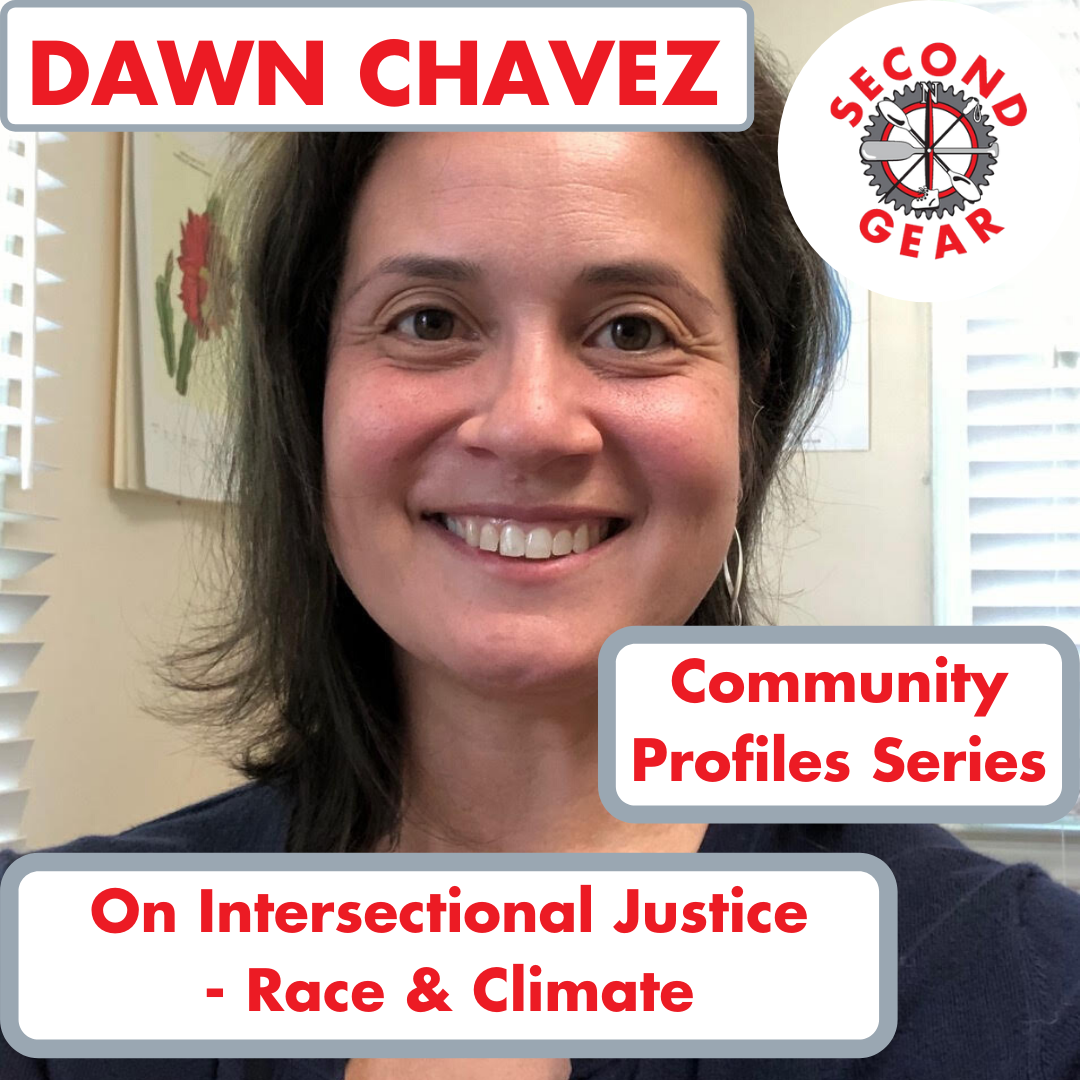As a woman of color, Dawn Chávez is in rare company as the chief executive of a non-profit environmental organization. Since 2014 she’s served as executive director of Second Gear community partner Asheville GreenWorks and wants to inspire a new generation of people with diverse backgrounds to join her in the environmental movement.
The fact is, said Chávez, people of color may be among the most vulnerable to environmental challenges. For example, Black and Hispanic Americans tend to live in neighborhoods with more pollution. So building a movement to combat environmental problems should be more open and accepting of people of color.
Chávez, who grew up in the Bronx, moved from Boston with her husband and two children in 2014 to lead GreenWorks and to be near her sister, Karen, an editor and reporter at the Asheville Citizen-Times.
With four siblings in New York City, family camping vacations were their go-to get-away that fit their budget and was her connection to nature. She also adored her summer camp in Massachusetts. After graduating from college, she served on the camp’s board of directors and eventually took the helm of the Manice Education Center in New York City that introduced the outdoors to kids of color. During her stint in New England, Chávez launched the Boston Youth Environmental Network that focused on creating pathways for people of color to seek environmental related careers.
So when she landed in Asheville, a Mecca of the outdoor industry and hub of the environmental movement, she believed she could help people with diverse racial and ethinic identities get a foot up in an industry that’s vastly white.
“I was drawn to GreenWorks because of the focus on racial equity. I felt like I could make a difference here,” explained Chávez. GreenWorks, which was founded as Quality ‘76 to beautify the region for the U.S. Bicentennial, pivoted its focus in 2014 to work with people of color and public housing communities. At the core of the effort is YELP - the youth environmental leadership program - an 8 week internship for local teens to advance equity in outdoor professions.
“As a person of color I can see discrimination and prejudice more clearly than someone who has never expereinced it,” she said. “I feel like part of my role is to shine a light on the industry and show that at the leadership and executive level there are very few people of color on staff, in leadership, or on boards. I’m in a unique position to make change in my organization, in my field, and in Asheville. ”
Since minorities may lack a professional network in the environmental field, said Chávez, forming connections is a big variable to create a more inclusive field. However, there’s more to it than just recruiting if people of color are reluctant to apply in the first place. Which is why Chávez also encourages organizations to foster a culture that’s more supportive and welcoming to people of color.
“I can see the changes that have happened on an individual level,” she said. “But it takes time to build diversity and inclusion.”
And while George Floyd’s death may have brought racial justice to the headlines, there’s still plenty of work to do in an industry that generally lacks racial diversity has pushed GreenWorks to ensure that their work and culture are as inclusive as possible.
“It’s making us take a harder look at our programs,” said Chávez who pointed out that most of their volunteer clean-ups are predominantly white. “We are looking carefully at how we can change the narrative.”
By Jack Igelman


